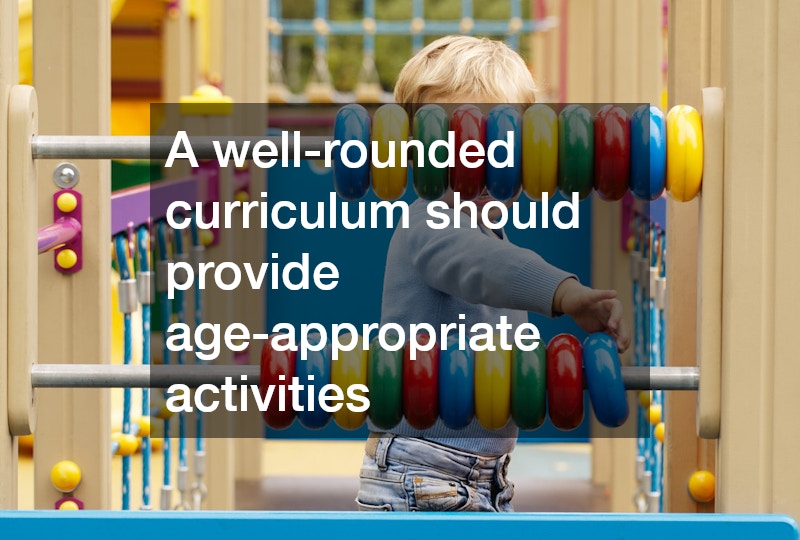Choosing the right early childhood education program is a critical decision that can significantly impact a child’s formative years. The experiences and learning opportunities available in a quality program are essential for fostering holistic development in children. A thoughtfully chosen program lays the foundation for a child’s future success, both academically and socially.
Early childhood education serves as a stepping stone into the world of structured learning, enhancing a child’s confidence and curiosity. The selection process can be overwhelming, given the multitude of options available to parents. However, understanding the most crucial aspects of early childhood education can help you make an informed choice that aligns with your child’s unique needs.
As parents and guardians, being proactive in your child’s educational journey is vital. The early years are marked by rapid growth, with children absorbing information at an impressive rate. By investing time in selecting the right program, you are prioritizing your child’s developmental future and creating a rich environment for their early learning.
The Details of the Program
When assessing early childhood education programs, one of the primary factors to consider is the curriculum offered. A well-rounded curriculum should provide age-appropriate activities that stimulate a child’s cognitive, social, and emotional development. It’s crucial to ensure that the program incorporates play-based learning, which is effective in engaging young children.
The teaching philosophy of the program is another vital aspect to review. Understanding whether the program prioritizes child-led learning, structured instruction, or a combination is key to ensuring it aligns with your child’s learning style. Look for programs that promote exploration and discovery, as this fosters creativity and critical thinking skills.
Lastly, teacher qualifications are paramount in your evaluation process. Teachers should possess the necessary educational background and certifications in early childhood education. Observing teachers in action and assessing their interaction with children can also provide insights into their effectiveness and teaching approach.
The Impact of the Environment on Children
The learning environment of an early childhood education program plays a pivotal role in shaping a child’s social skills. In a nurturing and stimulating environment, children learn to interact with their peers, develop empathy, and build friendships. These skills are foundational and can significantly impact their future social interactions.
Furthermore, an enriched environment can enhance a child’s emotional development. Programs that promote emotional health through supportive interactions help children navigate their feelings and understand their emotions. Children are more likely to thrive in environments where they feel secure and valued.
Additionally, cognitive development is heavily influenced by the structure and resources of the educational setting. Classrooms filled with diverse learning materials and age-appropriate activities encourage curiosity and intellectual exploration. Such environments stimulate critical thinking and problem-solving skills, preparing children for future academic success.
The Benefits of Early Childhood Education
The early years of education are instrumental in improving children’s social skills. Programs that facilitate collaborative play and teamwork help children learn how to communicate effectively and resolve conflicts. These social skills are critical as they transition to higher levels of education.
Additionally, early childhood education fosters kindergarten readiness. Children who attend quality programs often exhibit greater self-regulation, readiness to learn, and familiarity with structured learning. This sets them up for a smoother transition into elementary school.
Long-term academic success is another significant benefit of early childhood education. Research has shown that children who participate in high-quality early education programs perform better in school and have higher graduation rates. The foundational skills acquired in these early years can have lasting effects throughout their academic journey.
The Quality of the Program
Evaluating program quality starts with checking for proper accreditation. Accredited programs adhere to the rigorous standards set forth by early childhood education authorities, ensuring high-quality education. Understanding these standards can guide you in differentiating between exceptional and average programs.
Teacher-student ratios are another critical factor to consider. A low teacher-to-student ratio allows for more individualized attention and effective teaching approaches. Programs that maintain favorable ratios are often better equipped to cater to the varied needs of their students.
Lastly, gathering parent reviews and testimonials can provide valuable insights into the program’s quality. Speaking to other parents can yield information about their experiences, the staff’s dedication, and the overall atmosphere of the program. These anecdotal accounts can significantly influence your decision-making process.
The Role Parents Play
Parental involvement is critical in reinforcing the lessons learned in early childhood education programs. Engaging with your child about their day-to-day experiences creates connections between the home and school environment. Such interactions nurture a child’s curiosity and love of learning.
Furthermore, parents can support their child’s education at home through various activities that complement their schooling. Simple practices like reading together, exploring nature, or engaging in educational games can enhance a child’s understanding and interest in learning. This active participation shows a child that education is a shared priority.
Finally, maintaining communication with teaching staff is essential. Regular check-ins and attendance at parent-teacher conferences allow parents to stay informed about their child’s progress and any areas for support. This partnership between home and school is fundamental in creating a cohesive learning journey for young children.
Selecting the right early childhood education program is a decision that carries significant weight for your child’s developmental journey. From assessing the curriculum and environment to recognizing the role of parental involvement, each aspect contributes to a meaningful educational experience. By taking the time to research and evaluate various programs, you can ensure that your child receives the highest quality early education possible, setting the stage for their future success.




